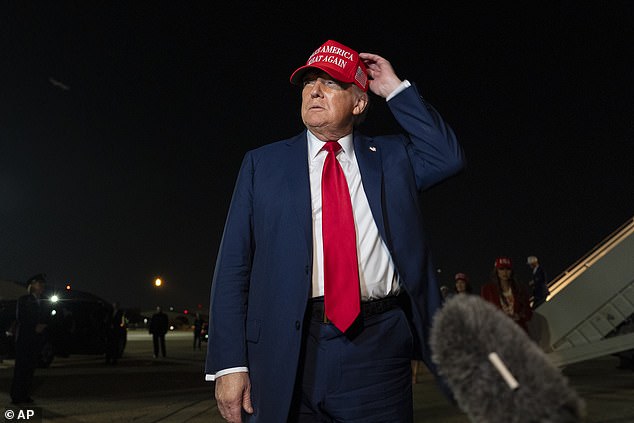President Donald Trump has reportedly threatened the European Union with a 17 percent tariff on food exports, a move that could cripple that industry.
The threat came ahead of a July 9 deadline to strike a trade deal otherwise the EU faces a 50 percent tax on all its goods going into the United States.
EU officials told the Financial Times the new food tax is an escalation between the two trading partners.
It was unclear if the 17 percent hit on food and farm exports would be in addition to the other tariffs announced by Trump or instead of them. The value of EU food exports to the U.S., including products such as wine, reached almost $58 billion last year.
Should the U.S. and EU fail to cut a deal by next week’s deadline, then EU goods imported to the U.S. could be hit by duties of up to 50 percent.
That could be swiftly followed by retaliatory measures from European bloc that would target a wide range of American goods, including food stuffs and technology.

President Trump is pushing a 17% tax on all foods from EU into the US
The U.S.-EU trade relationship is one of the biggest in the world, accounting for around 30 percent of global goods.
Key exports from the U.S. to the EU include crude oil, civilian aircraft, and pharmaceutical products.
The EU, for its part, exports a wide range of goods to the U.S., including machinery, vehicles, chemicals, and food stuffs.
In 2024, trade between the two was valued at around 1.68 trillion euros – or $1.98 trillion.
The EU has a surplus of 198 billion euros when it comes to goods, but a deficit of around 148 billion euro in services given the Europeans an overall trade surplus of around 50 billion euros.
Trump has repeatedly railed against the European Union, accusing it of taking advantage of the United States.
The EU was ‘formed to screw the United States,’ he has charged repeatedly.
Negotiations have been challenging.
Reports say the two sides are working on a five-page draft ‘agreement in principle’, but it has very little agreed-upon text in it.
‘What we are aiming at is an agreement in principle,’ European Commission President Ursula von der Leyen said on Thursday, adding that a detailed agreement was ‘impossible’ to reach during the 90-day reprieve.
She also warned that, if no agreement is reached, ‘all the instruments are on the table.’

European Commission President Ursula von der Leyen warned that, if no agreement is reached, ‘all the instruments are on the table.’
Treasury Secretary Scott Bessent seemed hesitant about the odds of agreement being reached before the July 9th deadline.
‘We’ll see what we can do with the European Union,’ he told CNBC’s ‘Squawk on the Street’ on Thursday.
Talks are continuing over the weekend.
EU officials may accept maintaining the 10 percent baseline tariff for most goods in exchange for sectoral exemptions, per reports.
The bloc wants immediate relief for pharmaceuticals, aircraft, semiconductors, and alcohol exports – critical industries where supply chains span the Atlantic.
European negotiators, however, are not being helped by internal divisions among its 27 members – some nations want to accept higher tariffs in return for a period of certainty and others want to retaliate to put pressure on Trump to compromise.
Friedrich Merz, chancellor of Germany, the EU’s biggest and most export-dependent economy, has been pressing the commission, which runs trade policy, to settle for a quick deal.
He wants exemptions from Trump’s 25 percent tariff on vehicles and 50 percent on steel. Germany is one of the biggest exporters of automobiles.
French President Emmanuel Macron, however, insists on full reciprocity.












